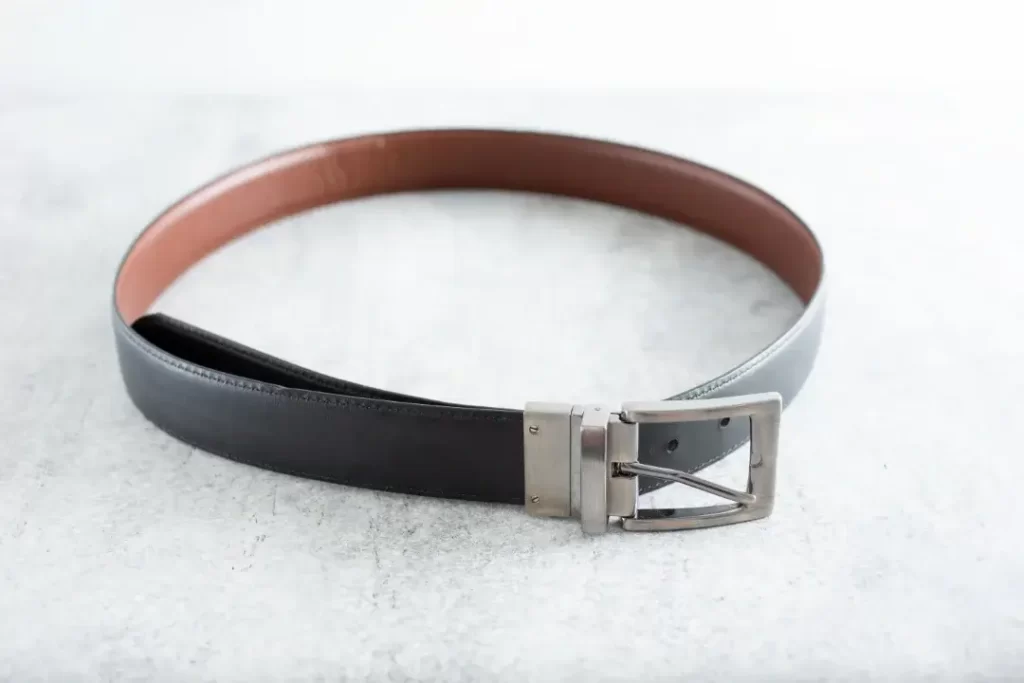
Why Clothing Brands Fail
Top Different Types of Shirts for Women and Men Top Different Types of Shirts for
Ever considered how a simple accessory, such as a belt, can alter your sartorial excellence? Sounds strange? But, the reality is a belt can make or break the overall appearance when worn with a suit. This blog uncovers the importance of why should you wear a belt with a suit. Whether you’re a corporate maven or just starting to navigate the world of formal wear, this guide will help you ace the game. Look here!
Let’s start from scratch. A suit belt, fundamentally, is a flexible band or strap, typically made of leather or a heavy cloth. It is worn around the waist and designed to complement your suit both functionally and aesthetically. The various textures, designs, and colors that a belt offers contribute to the personal style, thereby augmenting the overall impact of your formal look.

Indeed, not all suit belts are created equal. There is a variety of styles and types designed to cater to different occasions, outfit styles, and personal preferences. Let’s discuss a few:
Nothing spells classic elegance like ac. Leather belts are the most common type of belts used with suits. They typically have a smooth, polished finish that contributes to a sleek, put-together look.

These belts are made from leather or fabric woven into a durable band. They provide a more casual, textured look and can add an interesting contrast to a suit. Formal/Business Belts: These belts are usually thin, plain, and black or brown leather. They are meant to subtly contribute to the overall look rather than distract from it.

Reversible belts give you the versatility of two color options in one belt, typically black on one side and brown on the other. This can be a highly practical option for those aiming to simplify their wardrobe.

At a baseline, a belt holds your trousers in place. However, on a deeper level, it’s a piece of accessory that gives a cohesive look to your suit. The belt provides a dividing line between your top and bottom attire, thereby helping you attain a proportional appearance. Beyond functionality, a belt is also about making style statements. A well-chosen belt can become a pivotal point of your overall ensemble, showing your personality and setting you apart from the crowd.
Different cultures and social spheres have their expectations when it comes to dressing. In certain professional settings, a polished, suit-clad look is seen as a sign of respect and adherence to norms. In some circles, a suit without a belt is considered incomplete, regardless of how well-fitted the trousers might be.
So, wearing a belt becomes more than a simple choice; it becomes a way to express respect for social norms and dress code expectations, offering a sharp, polished aura.
From a purely aesthetic standpoint, adding a belt to your suit can provide the perfect finishing touch. An elegant belt can maintain the balance between your top and bottom halves, breaking the monotonous continuity of the suit. Also, it significantly contributes to a more structured and streamlined look. Here are a few pros:
Visual Appeal: As mentioned earlier, a belt adds an extra layer of sophistication and completeness to your overall get-up.
Functionality: A belt ensures your trousers stay up, providing a neat appearance and added convenience.
Personal Style: A belt can also serve as a medium to bring out your personal style and uniqueness. Be it a casual woven belt or a smart formal leather one, your choice of belt can speak volumes about your aesthetic sensibilities.
While a belt has its merits, there can be potential drawbacks depending on the circumstances. A few of these are listed as follows:
Comfort: If your trousers are already fitted well, adding a belt might restrict your comfort.
Overcomplication: Sometimes, the entire look can be overpowered with a flashy belt, taking away the attention from the suit.
Cost: High-quality leather belts do come with a significant price tag.
Guidelines on matching your belt with your shoes and suit One of the undying rules in formal wear is that the color of your belt should match the color of your shoes, pairing up similar shades will infuse a symmetrical vibe to your appearance. Also, the material of the belt should harmoniously resonate with that of the shoes. You wouldn’t want an uber-shiny belt with dull matte leather shoes.

Choosing the color, style, and buckle The trick is to coordinate. If you’re wearing black shoes, a black belt is perfect. Lean towards hues of brown if your shoes are brown or tan. For a formal occasion, a classic leather belt with a simple metal buckle would be the safest choice. However, for a more casual setting, playing around with styles like woven or braided versions adds some adventure.
The general rule of thumb is that your belt should be 1 or 2 inches larger than your pants size. So, if you wear a 34-inch waist pants, go for a 36-inch belt. The belt should comfortably secure around the third hole from the center for an ideal fit. A belt that’s too short looks awkward and one that’s too long would also require trimming for a polished appearance.
In the realm of professional and formal occasions, you want to look impeccable and polished. Nothing complements a smart suit better than a well-matched leather belt. Choose a sleek, simple leather belt in a solid, dark color (black and dark brown are safe choices). Match the metal finish of your belt buckle with your watch and cufflinks for added elegance.

Depending on the level of formality of the event, you may have flexibility in the type of belt you choose. A leather belt is a timeless classic for formal weddings, while a canvas or suede belt could work for more casual or outdoor weddings. Remember, your belt should complement your shoes and tie in with the overall theme of the outfit.

For those instances where the dress code isn’t as stringent or you’re looking to style your suit less formally, opt for a more relaxed belt. Fabric, woven, or colored leather belts can add a touch of personality to your outfit. Again, aim to casually coordinate the belt with your shoes for a curated look.

By now, we are sure you’ve gotten a good grasp of whether Should You Wear A Belt With A Suit or not and what are the best combinations available . I chose mindfully, that a belt can seamlessly fuse form and function, providing an additional layer of personality to your formal wear and maintaining the fine balance between refinement and style statement. We hope that this guide has helped unveil the nuances of pairing belts with suits and has answered many of your queries about this often under-debated element of formal wear.
Though considered a faux pas in some circles, not wearing a belt with a tailored suit is perfectly acceptable. The idea of ‘breaking the suit’ with a belt is slowly being replaced by the sleek, minimalist look of a well-tailored suit without a belt. However, this largely depends on the audience, the occasion, and personal preference.
As mentioned before, your belt should be 1 or 2 inches larger than your pant size for an ideal fit. The belt should fit comfortably in the middle hole of the buckle when put on. If the end of your belt extends beyond and hangs loose, it might be a sign it’s too long. Conversely, if you’re struggling to get it in the hole near the end, it’s too short.
Traditional menswear rules suggest that the color of your belt should match that of your shoes. For a formal occasion or business setting, it’s best to follow this rule for a polished look. However, slightly bending this rule to suit personal style might work in more casual or relaxed settings. Still, it requires a certain level of expertise in styling to pull it off without looking mismatched.
Expert Custom Clothing Manufcaturer

Top Different Types of Shirts for Women and Men Top Different Types of Shirts for

What You Must Know About Clothing Samples? Before You Produce a Single Garment: What You

How Much Does It Cost To Make a Hoodie A Complete Cost Breakdown for Custom

Discover the Types of Buttons Discover the Types of Buttons That Transform Style and Functionality
Most Recent Posts
Expert Custom Clothing Manufcaturer
Join our Mailing list!
Get all latest news, exclusive deals and updates.